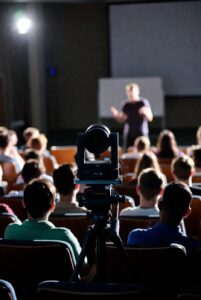
Collegerama: The Go-To platform for students at TU Delft
Collegerama is TU Delft’s essential platform for recorded lectures, offering students flexible, high-quality access to course content. With synchronized video, slides, and audio captured across 20 lecture halls and mobile setups, it supports learning at any pace and helps with exam preparation. Students can watch lectures from any faculty, expanding their learning opportunities. With new tracking cameras and AI-powered captions, Collegerama continues to evolve, making education more accessible and effective.
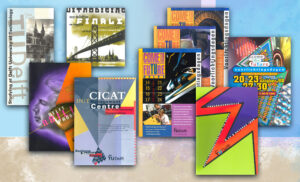
Inside NMC Graphics: The Story of Cok Francken
Cok Francken’s 30-year journey at TU Delft spans posters, identity systems, and large-scale installations. Known for clarity and balance, he begins with pencil sketches and draws inspiration from real-world textures and photography. His experience with big formats and careful use of AI tools shapes designs that feel authentic, thoughtful, and visually compelling.
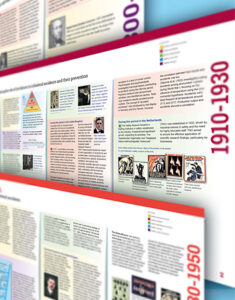
The Safety Science Wall: A Story Told in Panels
The Safety Science Wall transforms a TPM corridor into a visual story of safety science, created by Cok Francken, graphic designer from TU Delft’s NMC. Six large panels trace the field’s evolution using restored images, infographics, and archival posters, showcasing how design and research can turn complex history into an engaging, accessible narrative.
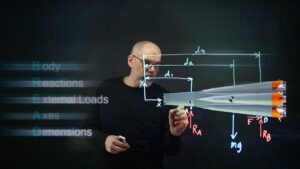
The Lightboard: making blended learning more engaging at TU Delft
At TU Delft, blended learning combines the flexibility of online teaching with the impact of face-to-face interaction. One tool making this possible is the Lightboard—a transparent glass board that lets educators write while facing the camera. Unlike traditional slides, it shows both the lecturer’s explanations and their expressions, making learning more engaging and personal. From flipped classrooms to problem-solving videos, the Lightboard helps teachers share not just answers, but the thinking process behind them—turning lessons into stories that connect with students.
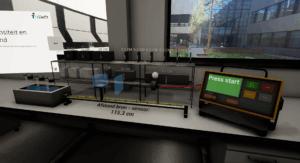
Radioactivity
The Radioactivity project uses VR to make learning safe and immersive, letting students explore radiation through realistic experiments while teachers guide remotely. By overcoming safety limits and instructor shortages, this innovative VR app democratizes access to hands-on science, transforming how students experience and understand radioactivity across classrooms everywhere.
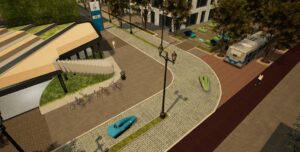
Eco-Runner Dream Team: Virtual Journeys into the Future of Driving
Step into the future with Eco-Runner Team Delft. Through immersive VR, experience the power of hydrogen fuel and sustainable innovation firsthand. From refueling at a futuristic station to driving the sleek Eco-Runner, this virtual journey showcases cleaner, smarter urban mobility—bringing the vision of hydrogen-powered transportation to life like never before.


